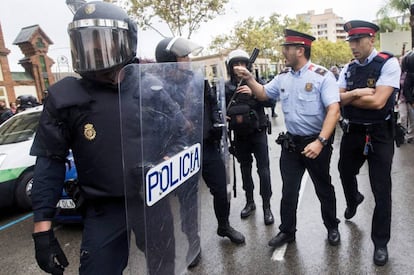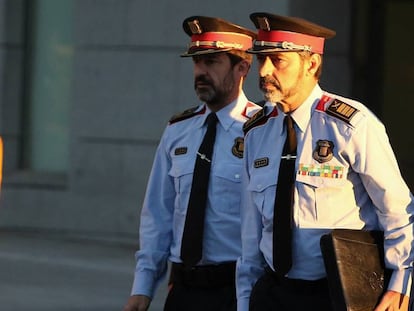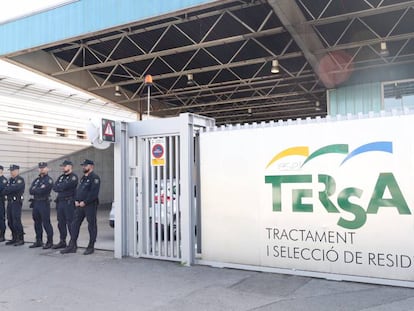Catalan government “designed an army,” Civil Guard report concludes
The ousted executive was seeking “to defend the Republic” from Spain following its unilateral declaration of independence

The ousted Catalan government had designed plans for an army “to defend the Republic” following the independence declaration of October, a report from the Spanish Civil Guard shows.
The document, which has been sent to a Barcelona judge investigating the illegal vote on secession from Spain, is based on an analysis of 20,515 emails seized from Lluís Salvadó, the former Catalan treasury secretary and a top aide to Oriol Junqueras, who was the deputy regional premier until Madrid sacked the entire Catalan government under special powers granted to them by Article 155 of the Constitution.
Officials assessed the advisability of introducing mandatory military service
These Catalan armed forces were meant to “prevent, among other risks, those that may come from the Spanish state,” according to the report.
One of the emails, which was sent weeks before the illegal referendum of October 1, contained a document titled “The security of the Catalan Republic.” This document discussed the defense model for the new state, and underscored the “urgency” of the matter.
The document stated that there is “a lot of uncertainty regarding how the Spanish state will react” during the “transition period.” The authors admitted that for a few years, Catalonia would need “for another State to offer temporary protection.”
The paper assessed the advisability of introducing mandatory military service in the new republic, then ruled out this option. “Mandatory military service has a very negative image among Catalans because of the mental association with the Spanish army,” reads the document. Military service was obligatory in Spain under a lottery system until 2001.

The authors also wondered “what to do” the day after independence, with “the 7,000” National Police and Civil Guard officers stationed in Catalonia.
The Civil Guard believes that 53 of these emails are relevant to the investigation currently underway at a Barcelona courthouse in connection with the illegal referendum.
These documents, says the report, are fresh evidence that the Catalan government was taking steps “with the sole goal” of declaring unilateral independence.
The report notes that Catalan officials were also trying to find ways to remain a part of the European Union. Failing that, the alternative was to join the European Free Trade Association (EFTA), whose members are Iceland, Liechtenstein, Norway and Switzerland. This option was discussed in a May report by Sergio Martínez, an economic affairs advisor at the European Parliament.
Catalan officials seemed so sure that the independence declaration would be effective that “they had even designed the cover page for the 2018 Budget,” notes the Civil Guard’s report. In an email sent in June 2017, Salvadó received two competing designs, one showing a designer bridge, and another one with the silhouette of a village. “That’s supposed to be Pineda. Somebody check that,” wrote an assistant trying to ascertain which village it was.
In another email from mid-September, the former treasury chief received a list of transitional laws and decrees that needed to be passed right after the independence declaration.
English version by Susana Urra.
Tu suscripción se está usando en otro dispositivo
¿Quieres añadir otro usuario a tu suscripción?
Si continúas leyendo en este dispositivo, no se podrá leer en el otro.
FlechaTu suscripción se está usando en otro dispositivo y solo puedes acceder a EL PAÍS desde un dispositivo a la vez.
Si quieres compartir tu cuenta, cambia tu suscripción a la modalidad Premium, así podrás añadir otro usuario. Cada uno accederá con su propia cuenta de email, lo que os permitirá personalizar vuestra experiencia en EL PAÍS.
En el caso de no saber quién está usando tu cuenta, te recomendamos cambiar tu contraseña aquí.
Si decides continuar compartiendo tu cuenta, este mensaje se mostrará en tu dispositivo y en el de la otra persona que está usando tu cuenta de forma indefinida, afectando a tu experiencia de lectura. Puedes consultar aquí los términos y condiciones de la suscripción digital.









































